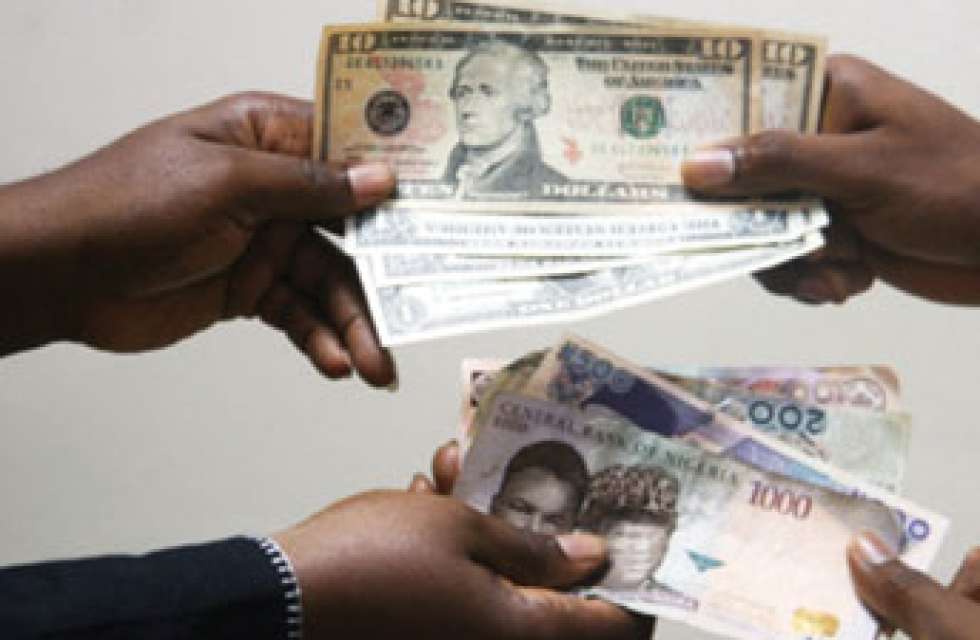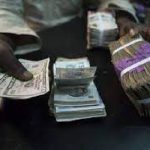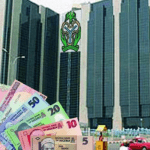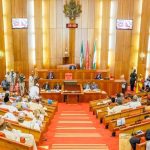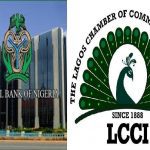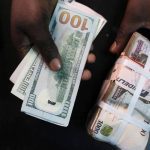The CBN governor, Godwin Emefiele, said on Saturday that the new exchange rate at the Investors and Exporters (I&E) foreign exchange window was not a devaluation of the Nigerian currency. butonly an adjustment of the rate.
Mr Emefiele spoke at an extraordinary bankers committee meeting comprising banks’ chief executive officers and CBN directors in Lagos.
“CBN has a responsibility to see to the adjustment in the national currency. What you have seen is an adjustment in the country’s currency (and not devaluation),” Mr Emefiele said.
On Friday, the CBN through an official circular by the Director, Trade and Exchange Department of the CBN, Ozoemena Nnaji, announced the new exchange rate.
The circular was on the disbursement of the proceeds of the International Money Transfer Operator (IMTO).
The official said the new rate effectively established a convergence that collapsed the multiple exchange rate policy used in determining the value of the Naira since June 2016.
Under the new rate, the country will now have a single exchange rate for official transactions, bureau de change (BDC) operators as well as for importers and exporters of goods and services, amongst others.
The circular said henceforth dollars would be sold to banks at the exchange rate of N376 per dollar, while banks would sell to the CBN at N377 per dollar.
Also, the rate CBN would sell to BDC operators would be about N378 per dollar, while BDCs to end-users would not sell more than N380 per dollar.
The maximum volume of sales for each market is put at $20,000 per BDC.
The new rates coming after weeks of agitation by some concerned economists and financial experts for the devaluation of the national currency was seen by many as CBN finally giving in to the pressures.
One of the strongest voices in support of the devaluation policy has been the former deputy governor in charge of Financial System Stability of the CBN, Kingsley Moghalu.
Speaking from the United States on a television programme on Friday, Mr Moghalu said the devaluation of the Naira is not only necessary but long overdue for the Nigerian economy.
He said Nigeria has not been able to derive any benefit from the previous devaluation of the Naira, because it was being pursued as a stand-alone policy and a reaction to events.
He said the time was ripe for devaluation to be used to reposition the Nigerian economy to be competitive and encourage exports of manufactured goods while discouraging importation.
“Devaluation must be accompanied by a number of policies, particularly those that promote giving subsidies to local manufacturers that export.
“CBN must stop the ban on foreign exchange allocation for the importation of goods and services. Rather, the CBN should use trade policies to increase tariffs on imported luxury items into the country,” he said.
But, the CBN has always insisted devaluation of the Naira was not one of the options it was considering, even in the face of the deteriorating economic conditions, amid the ravaging impact of the coronavirus pandemic on the global economy.
Last week, the CBN denied any plan to devalue the Naira, as “the current economic circumstances and macroeconomic fundamentals do not support Naira devaluation at this time.”
To buttress its decision, the apex bank argued that the Naira has been under pressure after crude oil prices fell below $30 per barrel at the international oil market as a result of the impact of the coronavirus pandemic on the global economy.
On Saturday, the CBN governor denied the apex bank had any hand in the alleged devaluation of the Naira.
“We have also been accused of having a hand (in Naira devaluation). We don’t have a hand,” Mr Emefiele said.

